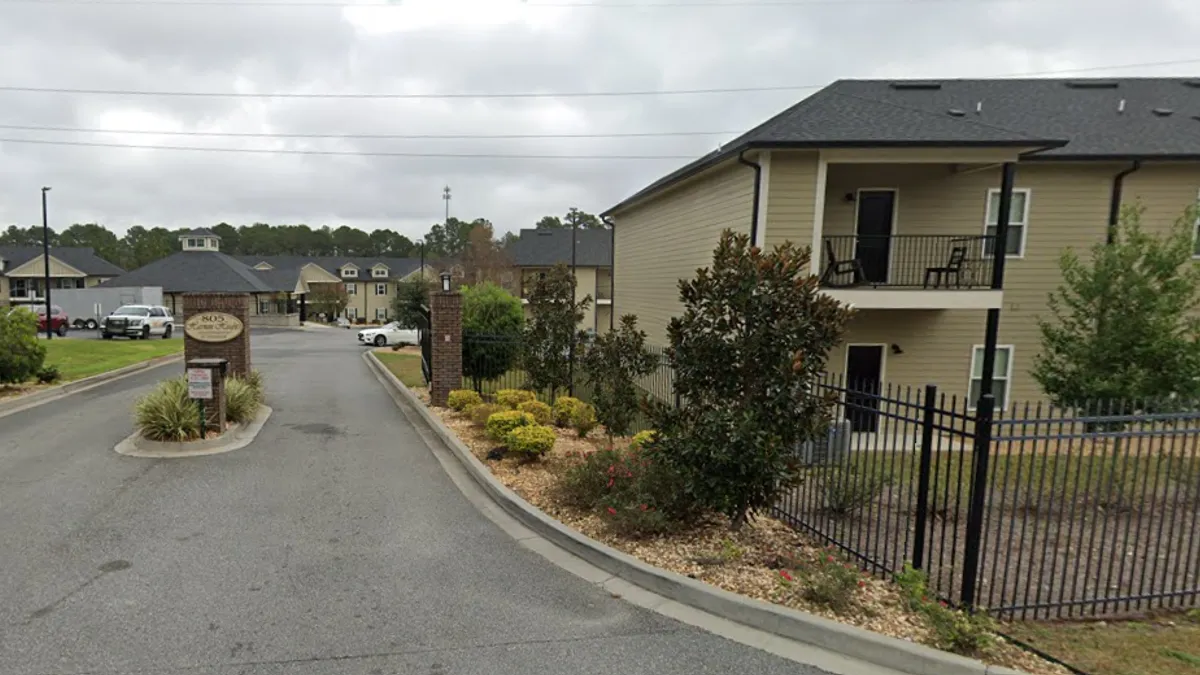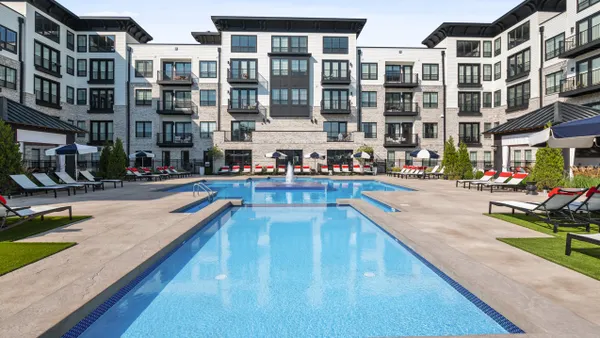This story is the first in a series looking at the effect of rising interest rates on the U.S. multifamily sector.
Earlier this year, apartment owner CGI+ planned to capitalize on astronomical prices by selling three properties in Southern California.
“We were trying to take advantage of what truly was a seller’s market,” said Aaron Cohen, chief operating officer of the Woodland Hills, California-based company.
But in April, CGI+ pulled two assets off the market. Then, in May, it decided not to sell another one.
The company’s quick shift with all three sales stemmed from one overriding issue: Rising interest rates.
Higher borrowing costs have thrown cold water on the once-torrid multifamily sales market, according to Cohen. The offers for the assets didn’t meet CGI+’s expectations, or buyers were asking for retrades, which are sales price discounts well into the purchase process.

“We pulled deals because we were hoping to sell them for the sky-high prices that we saw in the market,” Cohen said. “But because of the interest rate increase, we've had buyers come back to us and try to retrade it. We said ‘Look, we don't need to sell these assets. They're doing just fine.’”
Cohen isn’t alone. Others have seen rising interest rates and volatile Treasuries kill deals. As their financing costs go up, buyers seek discounts, while sellers are reluctant to lower prices.
Still, the overall numbers show a healthy market. In May, the multifamily sector posted $21.5 billion in sales — a 22% increase year over year and a record high for the month, according to data shared with Multifamily Dive from MSCI Real Assets, a firm that provides tools and services for the global investment community. However, MSCI pointed out that the pace of growth in April and May was slower than the increases in the first quarter of this year.
Sticker shock
At the beginning of the year, yields on 10-year Treasury notes, one of the indexes lenders base rates on for apartment transactions, sat at around 1.6%. By March, with the war in Ukraine intensifying and with inflation creeping to highs not seen in decades, yields were pushing 3%. In mid-June, they topped 3.48% — their highest mark since 2011.
As rates and Treasuries rise, borrowers face higher costs, often when they’re already under contract.
How the 10-year Treasury has jumped since early this year
| Date | 10-Year Treasury yields |
| February | 1.79 |
| March | 1.70 |
| April | 2.38 |
| May | 2.94 |
| June | 2.93 |
| July | 2.80 |
SOURCE: CNBC
“The increase in interest rates changes the way the numbers are calculated,” said Otto Ozen, executive vice president of Costa Mesa, California-based brokerage firm The Mogharebi Group. “When the lender is giving you [less money], it impacts the amount of equity you have to bring to the table and the yields you are planning on.”
The spike in Treasuries in early June didn’t just cause fixed-rate borrowing costs to go up, it also affected floating-rate debt, according to Patrick McGlohn, senior managing director of Berkadia’s Washington, D.C., metro office.
“It has had an impact on the proceeds across the board and borrowing costs on your fixed-rate loans,” he said.
When borrowing costs increase, buyers can go back to sellers and ask for a price cut. And that’s often what they’ve been doing in the last couple of months. “Buyers of some of the very large institutional properties are either canceling escrow or they're retrading and asking for a discount,” Ozen said.
There is a debate about how much retrading is actually going on in the market. Cohen estimates that 25% to 30% of deals he has seen have fallen out of contract, while Kyle Draeger, senior managing director of multifamily debt and structured finance at Houston-based CBRE Capital Markets said it's more limited. “Buyers don't want to be seen as retraders,” he said.
Sellers face a choice

When buyers ask for a discount, sellers have a decision to make: They get out of the deal or they can agree to a lower price. But as rates continue to rise, owners may be facing the specter of even lower prices if they hold for a few more months.
“Sellers are not in a situation where they’ll be able to get a similar price if they put the property back on the market,” said George Goyal, founding partner at Houston-based Three Pillars Capital Group, which specializes in class B and C multifamily communities.
Some owners, like CGI+, pull their assets off the market rather than accept lower prices “They realize that they don't have the right buyer pool or enough of the buyer pool and therefore end up just holding the assets until they find another opportunity to sell,” Cohen said.
If an owner is determined or forced to sell, they’ll need to reassess their expectations of value. “Sellers are now going to have to come off their high horse in terms of expectations on pricing,” Goyal said.
Traditionally, sellers have adjusted their price expectations in times of market turmoil, even if it takes a few months. “Usually, there is a little bit of a drop in sellers' expectations because the buyer's debt costs have gone up so much,” Draeger said.
Bidders disappearing
As it becomes harder to underwrite apartment properties, buyers become more skittish. Cohen estimates that the number of interested bidders in many deals has decreased by 50% to 75%.
CGI+ is one of those buyers pulling back. “We've been strict and pumping the brakes on buying deals right now unless we find the deal that actually does pencil out properly,” Cohen said. “Most firms have been like us and the buyer pool has truly become a lot less of a pool compared to before.”

Swapnil Agarwal, CEO and founder of Houston-based Nitya Capital, is taking a similar approach. In 2021, Nitya completed nearly $2 billion in total transactions, but for now, he plans to pause as he watches how the market reacts to interest rate increases.
“We're trying to close the last three housing assets under contract for a while,” Agarwal said. “Now we're going on pause for the remainder of the year on acquisitions.”
Those that are buying are underwriting conservatively. “We are assuming interest rates are going to be between 4% and 5%,” said Joe Lubeck, CEO of Tampa-based apartment owner and manager American Landmark. “So we will continue to pursue fixed rates for as long a term as possible.”
Click here to sign up to receive multifamily and apartment news like this article in your inbox every weekday.











